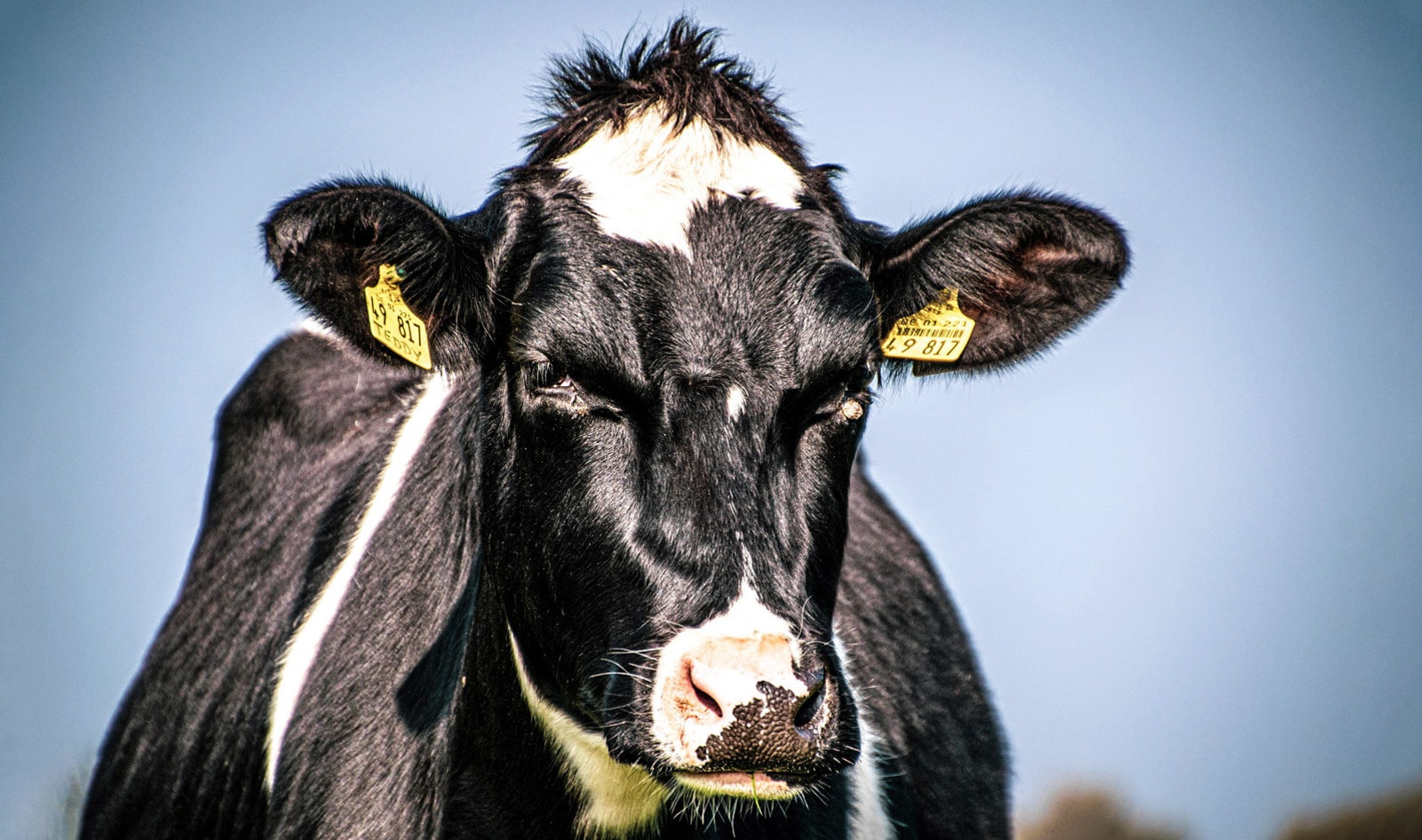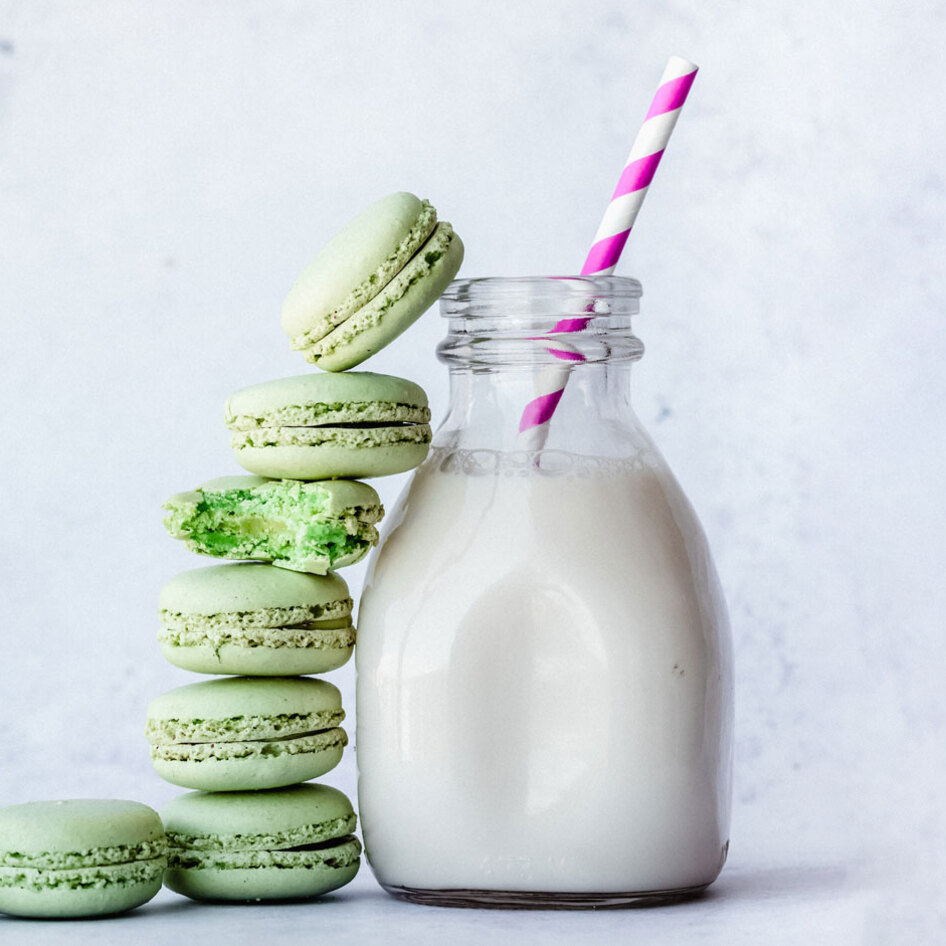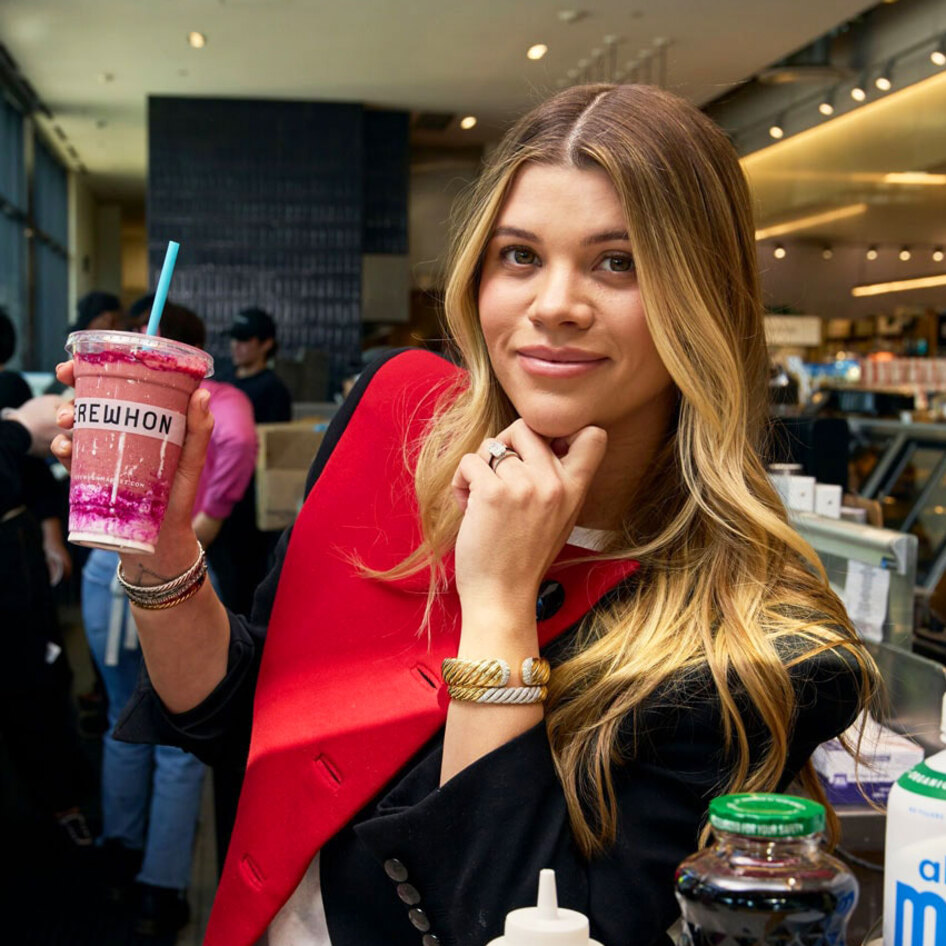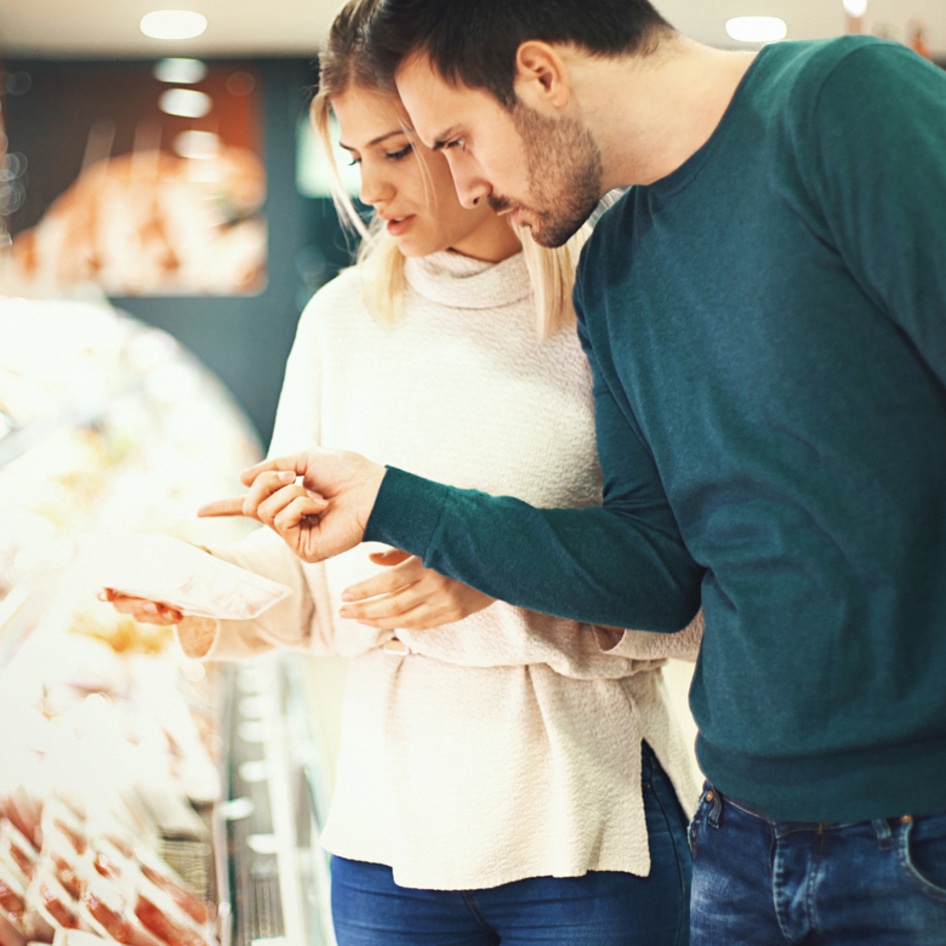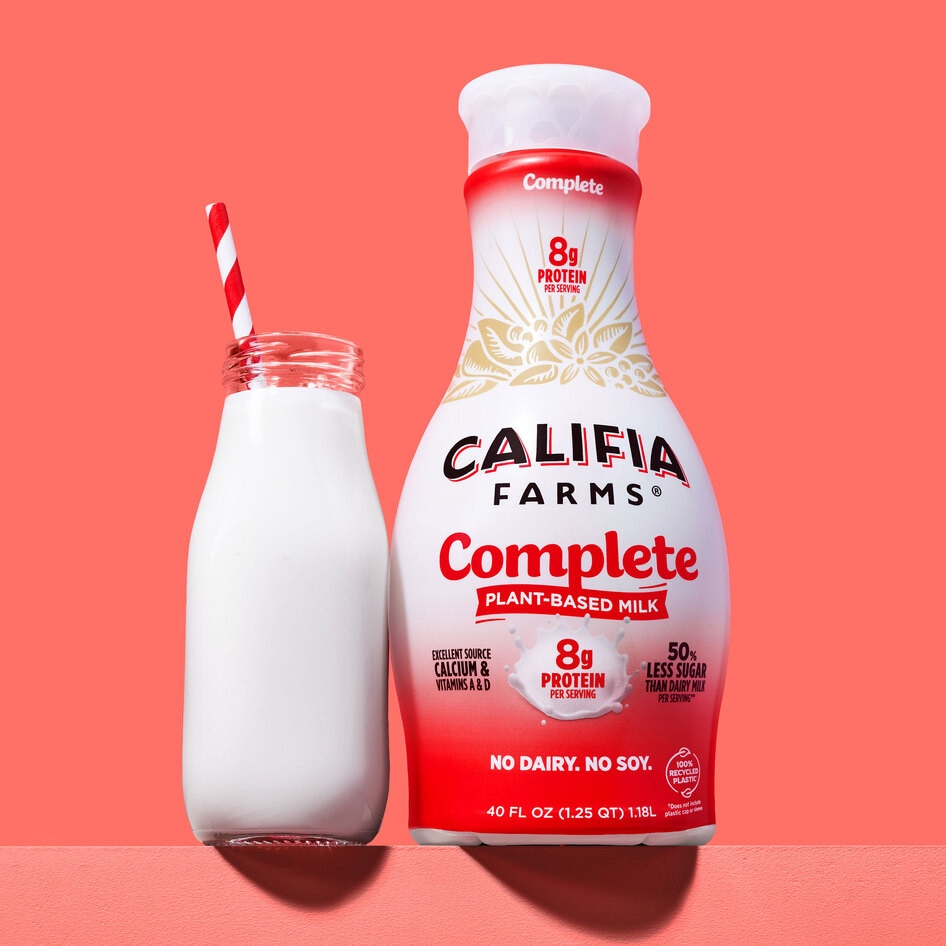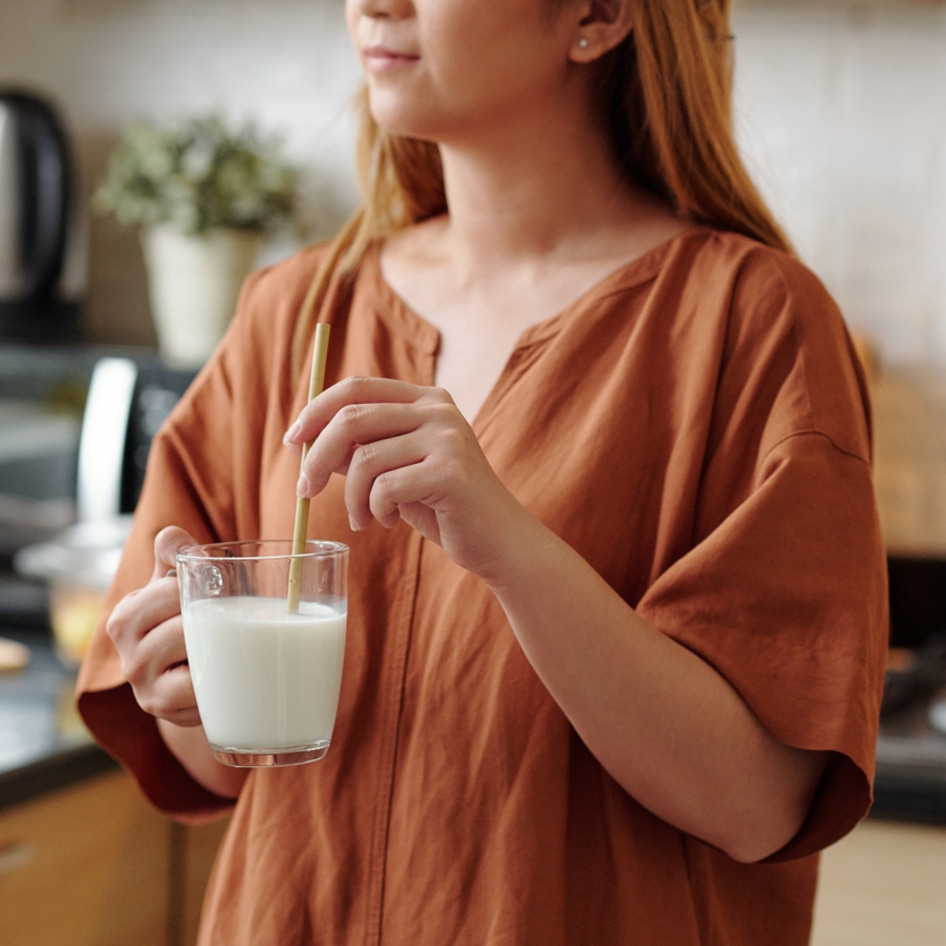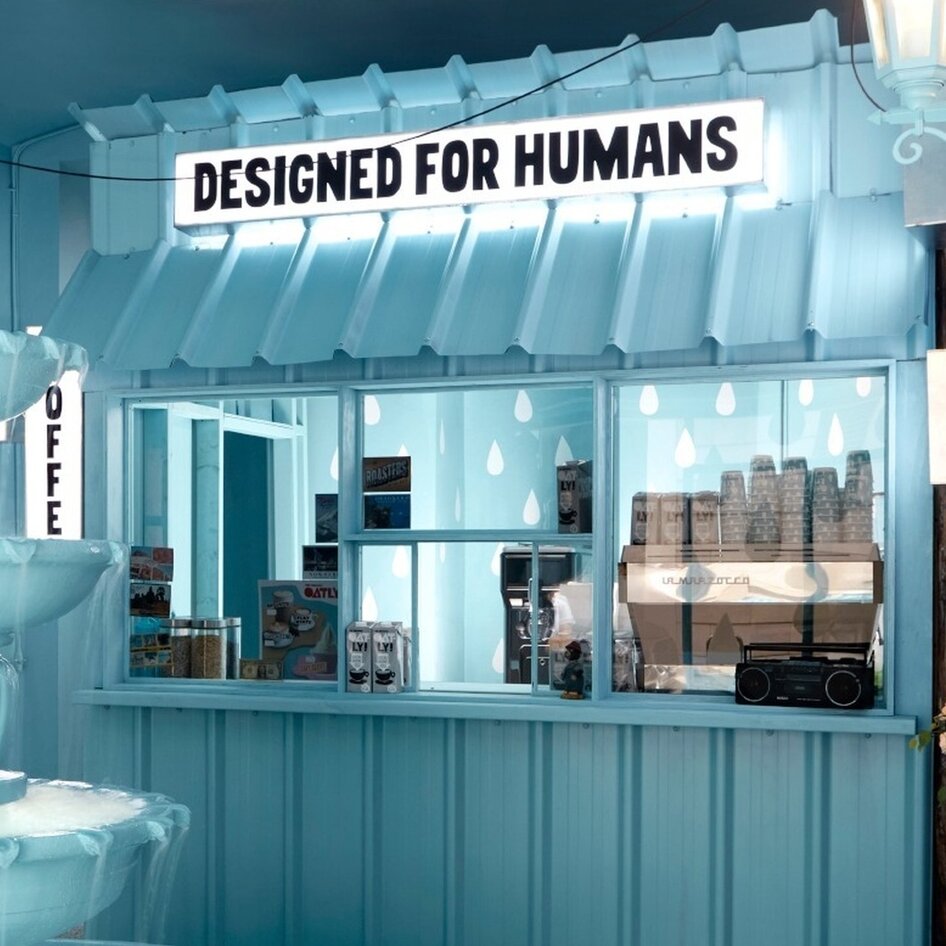Scientists recently cloned three “super cows” that they claim can produce an unusually high amount of milk.
The three calves, bred by scientists from the Northwest University of Agricultural and Forestry Science and Technology in China, were cloned from “highly productive” cows from the Holstein Friesian breed.
The animals produce approximately 18 tons of milk per year—milk that is meant for their calves after giving birth but is instead taken for human consumption. Their milk production is nearly 1.7 times the amount of milk an average cow in the United States produced in 2021, according to the US Department of Agriculture.
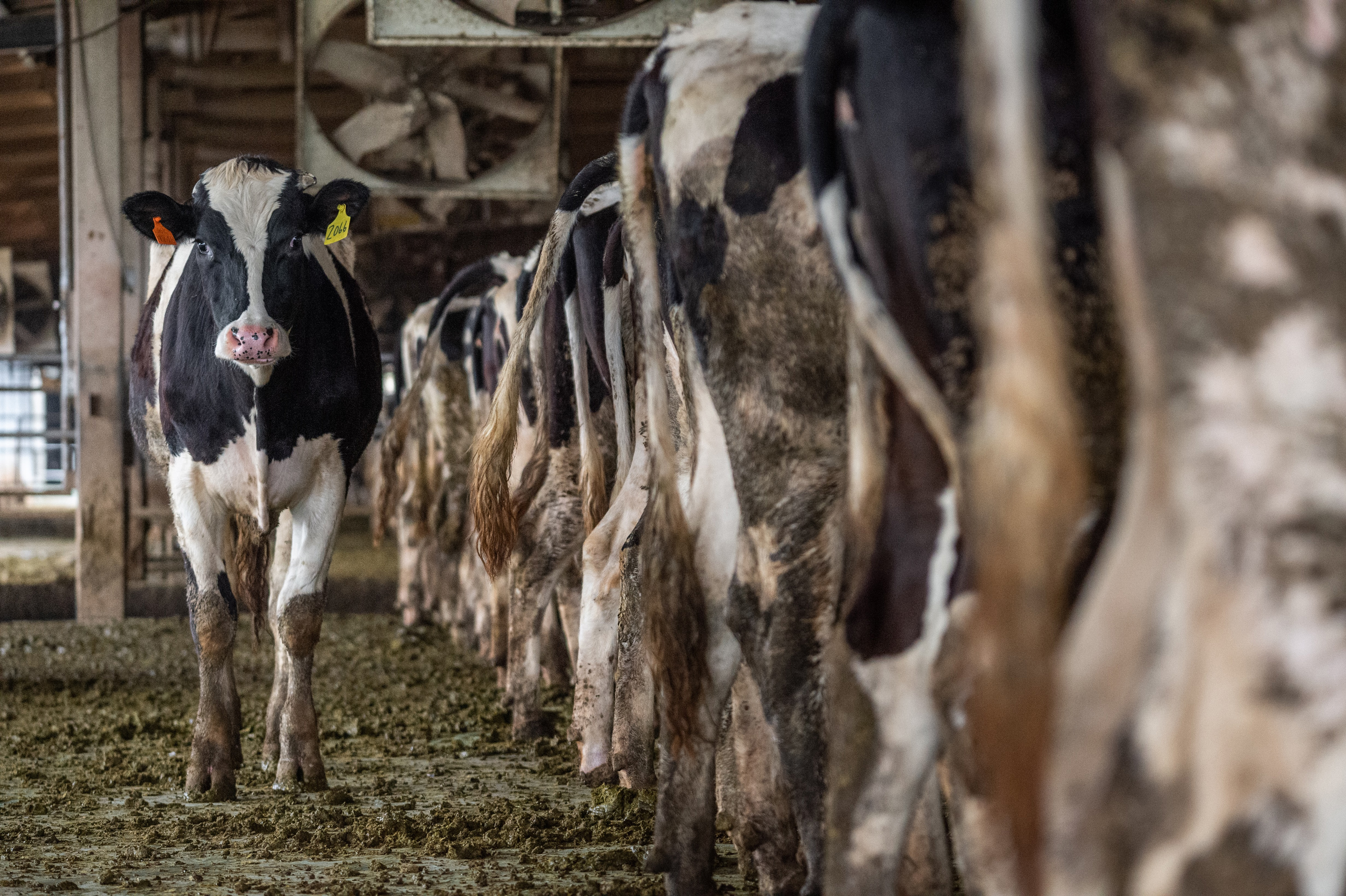 Jo-Anne McArthur / We Animals Media
Jo-Anne McArthur / We Animals Media
To clone the cows, the scientists made 120 cloned embryos from the ear cells of the Holstein Friesian breed and placed them in surrogate cows. The first of the cloned calves was born on December 30 by cesarean section because the 120-pound calf was too large for the mother to birth naturally, an official in the city of Wulin in Ningxia told the state-run publication Technology Daily.
Jin Yaping, the project’s lead scientist, called the birth of the “super cows” a “breakthrough” that allows China to preserve the very best cows “in an economically feasible way,” the state-run newspaper Global Times reported.
“We plan to take two to three years to build up a herd comprised of over 1,000 super cows, as a solid foundation to tackle China’s reliance on overseas dairy cows and the issue of the risk of being ‘choked’ [by supply chain disruptions],” Jin told the newspaper.
Manipulating animals for profit
Although the three cloned “super cows” are new for China, manipulating animals to yield bigger profits is nothing new for the meat and dairy industries. In many countries, including the United States, farmers breed clones with conventional animals to add desirable traits, such as high milk production or disease resistance, into the gene pool. In recent years, China has begun doing the same.
Because of their abnormally large size, “super cows” endure a slew of serious health problems. “The cloning process for cows can cause serious health problems, including a higher rate of genetic abnormalities, which can lead to difficulty giving birth because the offspring is too large,” Annette Manusevich, Farming Campaign Manager at World Animal Protection, US, tells VegNews.
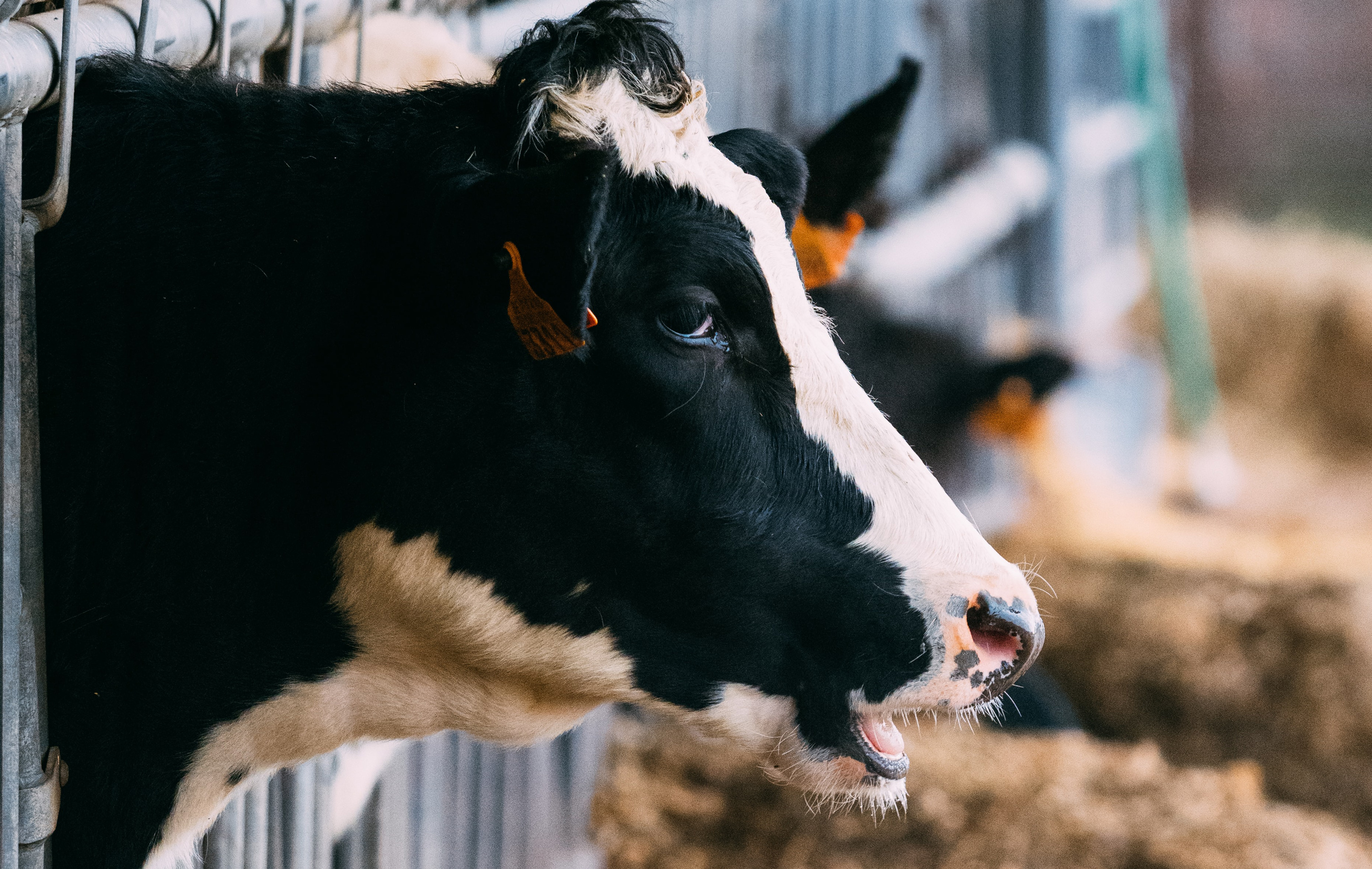 Unsplash
Unsplash
“This abnormality, called Large Offspring Syndrome (LOS), happens most commonly in cloning scenarios, and causes complications like early term deliveries or requiring cesarean delivery. LOS also rarely occurs in animals bred normally but occurs in about 51 percent of cloned calves.”
The problems that come along with cloning cows adds to a growing list of issues with animal agriculture, particularly in the dairy industry. According to Manusevich, it is also another example of inhumane and cruel treatment of animals.
“Animals involved in genetic modification like the cloning being done here, are subject to invasive procedures with little to no regard for their well-being,” Manusevich says.
“While some could consider this a scientific innovation, the sentient animals involved in these experiments would think otherwise.”
Manusevich says that consumers should also consider the impacts of the industry on the environment and our health, as well as the unsustainable nature of the cycle. “Dairy cows are forced to give birth once a year so that they can produce milk for most months of the year,” she says. “These cows are usually artificially inseminated within three months of giving birth, so the cruel cycle begins again, and offspring are taken from their mothers within hours of birth, causing severe distress to both the cow and the calf.”
While proponents often argue that dairy production is normal and natural, the brutality of exploiting cows for milk actually interferes with everything that is natural about their short lives. “With the intensive structure of dairy production, cows often become infertile after just three births,” Manusevich says. “At around five and a half years old, they are auctioned off and slaughtered to produce beef—which is in stark contrast to the 20 years of life a cow may naturally have.”
The impact of dairy on the environment
Cows in animal agriculture are also responsible for high methane emissions, a greenhouse gas around 25 times more potent than carbon dioxide. On average, one cow belches around 220 pounds of methane into the atmosphere every year. And in the US, there are around nine million cows used in the dairy industry.
“Factory farmed dairy production is incredibly unsustainable. It relies on extracting and consuming large amounts of natural resources, including water and land, for growing feed crops and grazing,” Manusevich says. “Animal feed production and management contributes to deforestation, biodiversity loss, and habitat destruction, and is a significant contributor to the greenhouse gasses associated with animal-based dairy.”
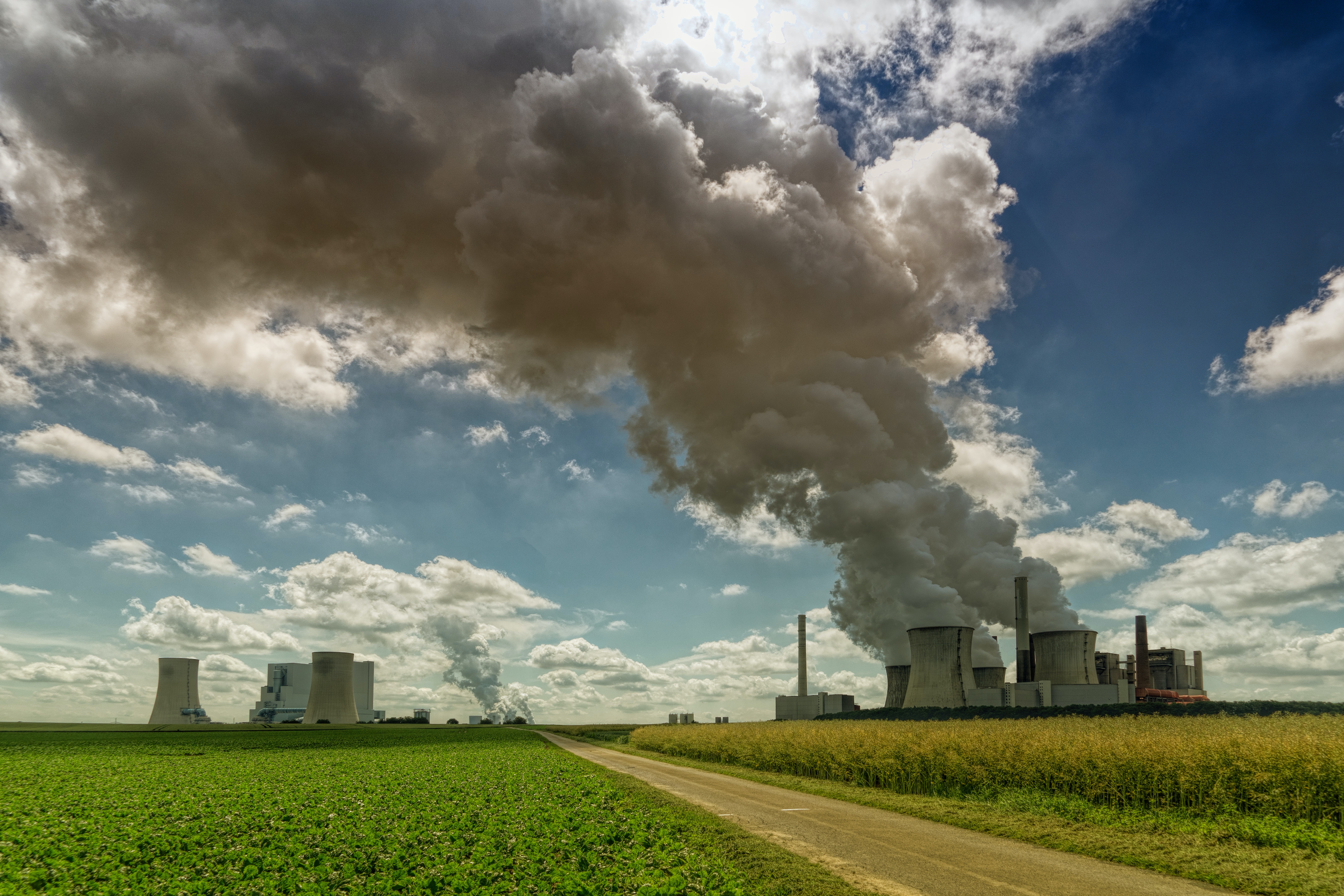 Johannes Plenio
Johannes Plenio
Additionally, the intensive process is associated with other environmental and health issues. “The manure produced from dairy cows, if not managed properly, can runoff into waterways causing pollution and impacting native habitats and ecosystems,” Manusevich says. “Crowded, barren living conditions and high milking frequency increase the risk of painful infections, leading to regular use of antibiotics and the spread of antibiotic resistant ‘superbugs’ that pose a threat to human health.”
Instead of creating “super cows,” the solution to these many problems, Manusevich says, is to decrease the demand for dairy products by choosing the many widely available plant-based options.
“Simple and delicious swaps for plant-based options help us all work together to make lasting changes that strive to treat animals with the kindness and respect they deserve,” Manusevich says.
How to make a lot of milk without cows
Luckily, there are plenty of alternatives to cows’ milk. Beyond what some call “single-origin” products such as soy, oat, and almond milk, vegan dairy alternatives are rapidly evolving to better compete with their animal-derived counterparts.
One major innovation is precision fermentation, a process that takes cows out of the dairy-making equation entirely and replaces them with microbes to make milk proteins. California company Perfect Day uses this production process to whey without any animal inputs. Making milk proteins in this way comes at huge environmental advantages while allowing manufacturers to produce vegan dairy in large quantities without any ethical drawbacks.
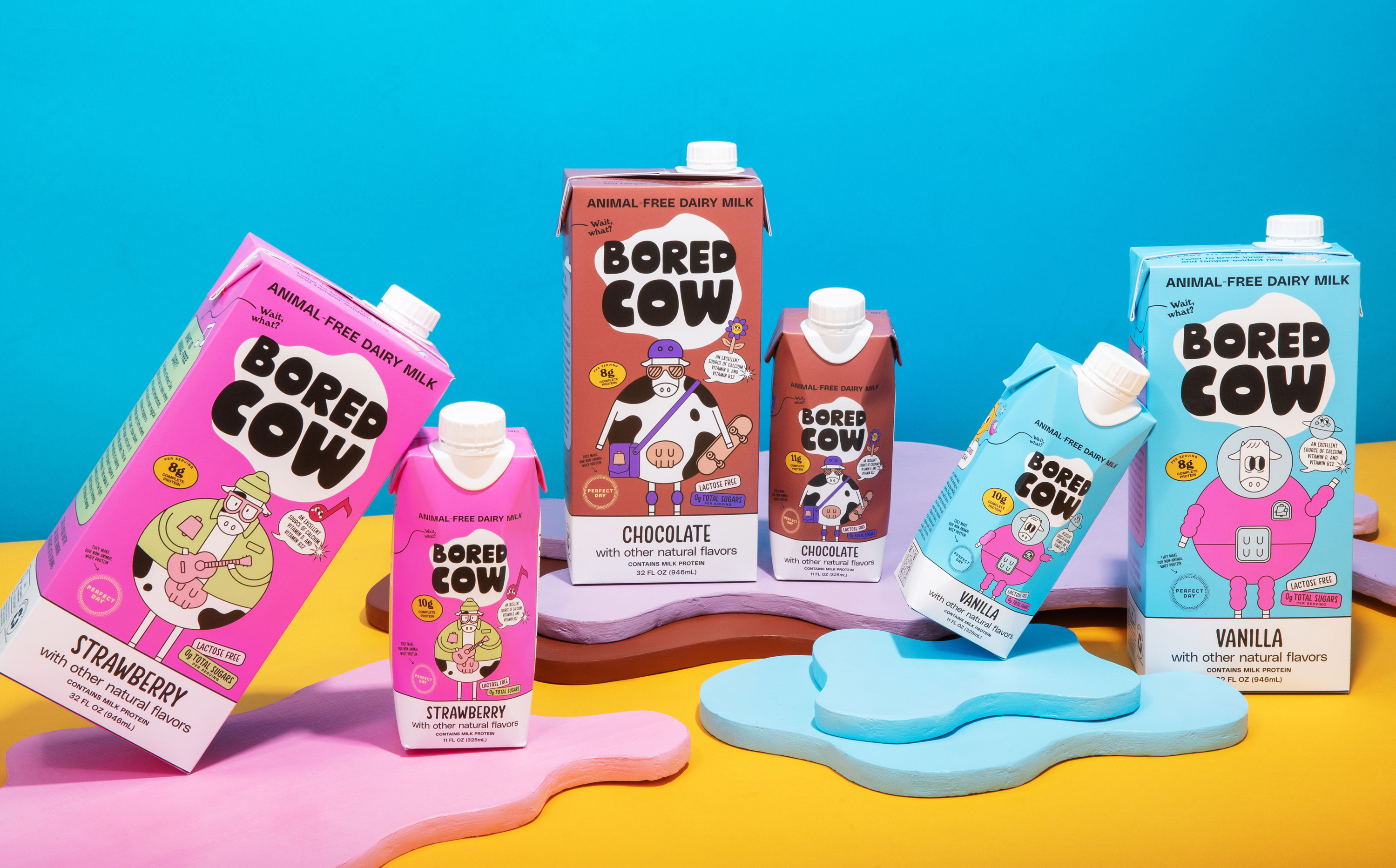 Tomorrow Farms
Tomorrow Farms
In recent years, Perfect Day’s animal-free whey has inspired the launch of several modern dairy brands that make milk—which ranges the gamut from whole fat to chocolate—without using cows, including Tomorrow Farms, Bored Cow, and Betterland Foods.
With $750 million in investment capital with backing from Leonardo DiCaprio and other A-listers, Perfect Day is the most well-funded startup in the microbial fermentation space. “A full-fledged response to climate change must bring innovation to all aspects of our daily lives—including to the foods we consume,” DiCaprio previously said in a statement.
“Perfect Day’s forward-looking vision offers a new model for reducing the impact that our diets have on the planet,” DiCaprio said. “I’m pleased to be part of their advisory council and work together to support our shared urgent environmental mission.”
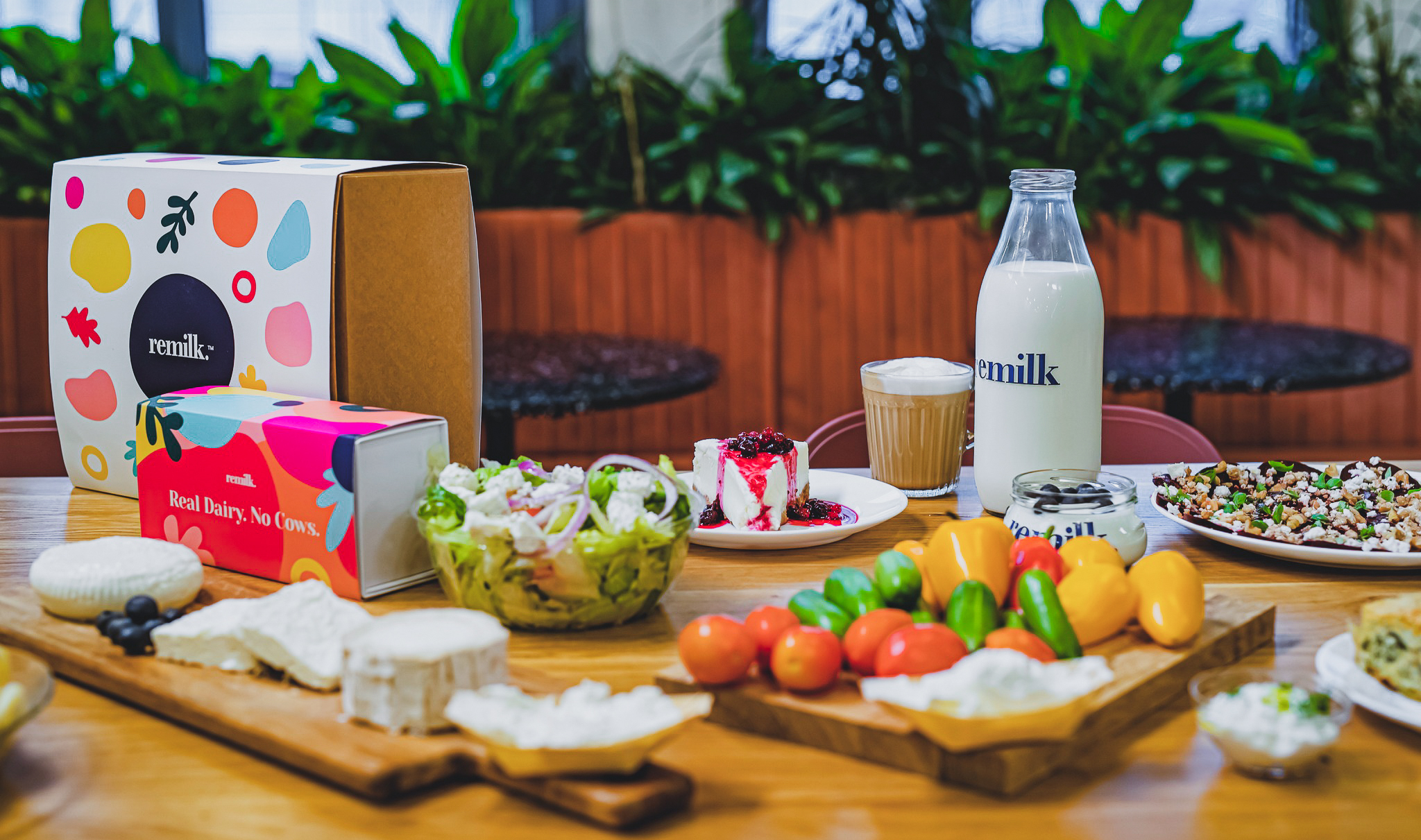 Remilk
Remilk
Another big player in the microbial fermentation space is Israel’s Remilk which is in the process of opening a new production facility in Denmark. Once fully operational, the plant will produce as much milk proteins as 50,000 cows in a much more environmentally and ethically friendly way.
“We are not just dreaming big, we are acting upon our promise to dramatically reduce the food industry’s devastating impact on our planet,” Aviv Wolff, CEO and founder of Remilk, previously said in a statement. “Ending animals’ historic role as providers of food for humankind is one of the most powerful measures we can take to reduce our impact on this planet.”
For the latest vegan news, read:
JUMP TO ... Latest News | Recipes | Guides | Health | Shop

